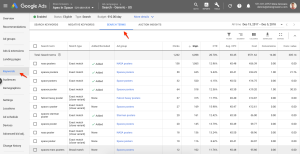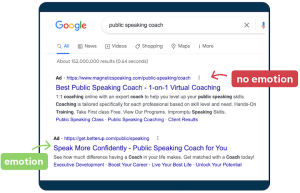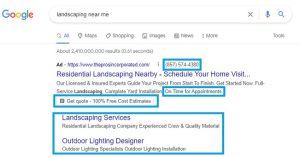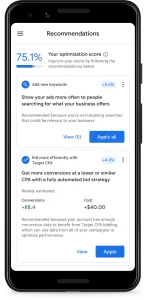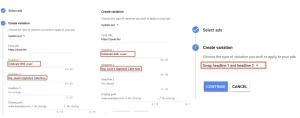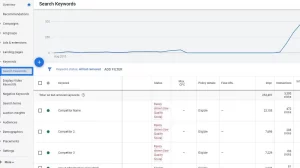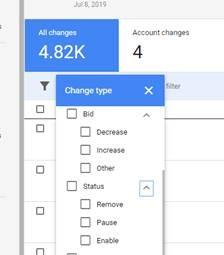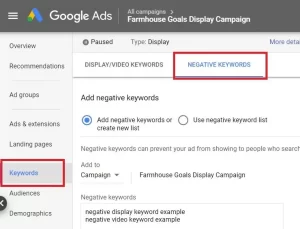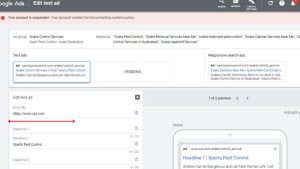Effective advertising can make or break a business in today’s fast-paced mobile-first world. With millions of users relying on Google daily to find products, services, and answers to their questions, Medical Google Ads has become an indispensable tool for businesses aiming to capture their target audience’s attention. A well-executed Google Ads campaign can generate valuable leads, increase brand visibility, and drive substantial revenue. However, despite this advertising platform’s immense potential, many businesses fall short of their expectations.
Listen, you’re not alone if your Google Ads Healthcare campaigns are underperforming in 2023. In this blog post, we’ll delve into the ten reasons why your Google Ads might be sucking the life out of your marketing efforts. By understanding the importance of good Google Ads and how to address common pitfalls, you can revolutionize your advertising strategy and reclaim the success you deserve. So, buckle up because we’re about to embark on a comprehensive analysis that will transform your perception of Google Ads and help you propel your business to new heights of digital success.
What’s Going On Your With Medical Google Ads Campaign?
1. You Haven’t Completed Your Healthcare Keyword Research
Optimizing your Google Ads campaigns is essential in order to ensure maximum ROI and visibility. Unfortunately, many marketers are still not taking full advantage of continuous optimization techniques to get the most out of their campaigns. Failing to optimize your campaigns regularly means you are missing out on opportunities for increased success and are likely to see lackluster results.
How To Fix It?
To fix this, it is vital to implement an ongoing optimization strategy to ensure your healthcare marketing campaigns stay up-to-date and competitive. This means regularly checking performance metrics, gathering data from different sources, testing various methods, and adjusting bids accordingly. Doing so will provide you with the best chance of achieving your desired outcomes and ensuring you get the most out of your Google Ads campaigns. You can ensure your campaigns remain up-to-date and competitive in 2023 and beyond by taking advantage of continuous optimization.
2. You Have Medical Marketing Poor Ad Copy
Regarding Google Ads, many marketers have been guilty of thinking that ‘copy’ is just a few words thrown together with little thought behind them. But this couldn’t be further from the truth! Your ad copy plays an essential role in capturing your audience’s attention and driving your desired action. Regrettably, many marketers fall into the trap of crafting dull ad copy that fails to stand out or resonate with their target audience. Don’t be one of them. Be Better!
How To Fix It?
To ensure your Google Ads shine and deliver exceptional results, it is crucial to implement the following strategies: (1) use keywords that are relevant to your target audience; (2) create an engaging headline that captures attention immediately; (3) be clear about what you’re offering; and (4) write unique copy for each ad. With a little effort and creativity, you can craft amazing ad copy that will have people clicking through in no time!
3. You’re Neglecting Medical Ad Extensions
Ad extensions are one of the most important aspects to consider when optimizing your Google Ads campaigns, yet so many marketers neglect this crucial feature. It’s not enough to have ads that focus on high-quality keywords and attractive ad copy; you must also leverage every opportunity to get in front of potential customers. Ad extensions enable advertisers to stand out from competitors by adding more relevance, helpful information, and value for those who view search results. By including call extensions, location extensions, site links, review extensions, and much more, your Google Ads can be taken up a notch with an eye-catching design coupled with valuable features like clickable phone numbers or additional links within the text of your ads.
How To Fix It?
To fix this issue, familiarize yourself with the various ad extensions available, such as site links, callouts, structured snippets, and more. Carefully consider which extensions align with your campaign objectives and target audience. Use site links to direct users to specific pages on your website, highlight key benefits or promotions with callout extensions, and provide additional context with structured snippets. Remember to tailor your ad extensions to match your ad copy and landing page, ensuring a cohesive and seamless user experience. Finally, regularly monitor and analyze the performance of your ad extensions to identify which ones are driving the most engagement and adjust accordingly. By incorporating ad extensions effectively, you can increase your ad’s visibility, provide more value to potential customers, and ultimately improve your campaign’s click-through rates and conversions.
4. You’re Ignoring Mobile Optimization For Medical Ads Campaigns
In 2023, it’s still possible that some websites are not optimized for mobile devices. This can be a huge mistake when it comes to Google Ads. Unoptimized sites will take longer to load on mobile devices, and users may quickly become frustrated with the slow loading speed and navigate away from the page before they even see your ad. Additionally, without being optimized for various screen sizes, potential customers might not see your ad at all or get the wrong impression about its quality. So don’t make this mistake. Otherwise, you might as well kiss your Google Ads goodbye!
How To Fix It?
As we stated earlier in this article, optimization is critical! In order to see accurate results from your Google Ads, our experts recommend optimizing your ad formats to fit smaller screens, utilizing shorter headlines and concise ad copy that quickly captures attention. Consider using mobile-specific ad extensions, such as click-to-call or location extensions, to drive immediate actions from mobile users. Pay attention to your website’s mobile experience, ensuring easy navigation, clear call-to-action (CTA) buttons, and a seamless browsing experience. Regularly monitor the performance of your mobile campaigns, analyze mobile-specific metrics, and make data-driven adjustments to improve results. The “set-it-and-forget-it” method will not work for your Google Ads campaigns.
5. You Haven’t Done Enough A/B Testing
A/B testing, also known as split testing, is an indispensable practice for optimizing your Google Ads campaigns. If you haven’t invested enough time and effort into A/B testing, it could be a significant reason why your ads are underperforming in 2023. A/B testing allows you to compare and evaluate different variations of your ads to determine which ones resonate better with your target audience and drive higher conversion rates. When there is no reliable data or metrics to back up the logical assumptions marketers make when designing ads, it becomes difficult to know whether they are going in the right direction.
How To Fix It?
Begin by identifying the critical ad elements you want to test, such as headlines, ad copy, call-to-action buttons, or even landing page designs. Then, create multiple variations of these elements and run them concurrently, making sure that only one part is changed at a time for accurate analysis. Keep an eye on the performance metrics and key performance indicators (KPIs) to see which variations perform the best and produce the best results. This data-driven approach will provide valuable insights into your target audience’s preferences and behavior, allowing you to refine and optimize your ads for maximum impact. Remember to run tests for adequate time to obtain statistically significant results and make informed decisions.
6. Your Quality Score Dropped
Your Quality Score is a crucial metric that directly impacts the success of your Google Ads campaigns. If you’ve noticed a significant drop in your Quality Score, it’s essential to identify the underlying causes and take immediate action. One reason for a declining Quality Score could be the relevance of your keywords, ad copy, and landing page. Google’s algorithms evaluate the alignment between these elements to determine the quality and relevance of your ads. If your keywords are not closely tied to your ad copy and landing page content, it can lead to a lower Quality Score.
How To Fix It?
Conduct thorough keyword research to address this and ensure your ad groups are tightly themed around specific keywords. Craft compelling ad copy that aligns with your keywords and provides a clear value proposition to users. Optimize your landing pages to provide a seamless user experience, ensuring the content is relevant, engaging, and meeting users’ expectations. Another factor impacting your Quality Score could be your ads’ click-through rate (CTR). If your ads are not generating enough clicks, it suggests that they may not be resonating with your target audience. To improve CTR, refine your ad copy to make it more compelling, test different variations, and leverage ad extensions to enhance the visibility and relevance of your ads. Furthermore, consider the ad position and bid competitiveness.
7. You Aren’t Focused On Google Ads Bid Management Enough
Another reason your Google Ads aren’t yielding the most outstanding results is a lack of emphasis on bid management. Bids play a crucial role in determining your ad’s visibility, position, and, ultimately, the success of your campaigns. Unfortunately, many advertisers fail to give bid management the attention it deserves, resulting in suboptimal performance and wasted ad spending.
How To Fix It?
To rectify this issue, set clear goals and objectives for your campaigns. Determine your target return on ad spend (ROAS) or cost per acquisition (CPA) and align your bidding strategy accordingly. Explore different bidding options, such as manual bidding or automated bidding strategies like target CPA or ROAS. Continuously monitor and analyze your campaign’s performance metrics, adjusting bids based on keyword performance, ad position, and conversion data. Consider leveraging bid modifiers for device performance, location-based targeting, or ad schedule optimization. By staying proactive with bid management, you can optimize your campaigns for maximum efficiency and profitability. Regularly analyze the competitive bidding landscape, industry trends, and keyword competition to adjust your bidding strategy accordingly. Remember, bid management is an ongoing process that requires constant evaluation and adjustment.
8. Your Medical Google Ads Are Paused, Removed, Or Disapproved
Google Ads can be paused or removed for a variety of reasons. One common reason is that your ad isn’t performing well. Google might determine that the ad, or any associated keywords, are not cost-efficient and pause them until you lower your costs. Additionally, an advertisement may be quickly removed from the platform if it appears deceptive or fraudulent. Another common issue is ad policy violations, as Google Ads has precise rules about what can and cannot be advertised. If you’re running afoul of any of these policies, your ad will be paused or removed until it is brought into compliance with the guidelines.
Furthermore, if your account is flagged for suspicious activity, any ads associated with the account may be temporarily paused or removed while Google investigates. This is to ensure that all activity on the platform is legitimate and complies with Google’s standards. If you are encountering any of these issues, it’s important to take quick action to rectify the situation so your advertisement can be resumed as soon as possible.
How To Fix It?
To resolve this issue, you can easily switch the Paused ads, ad groups, or campaigns to Enabled and ensure they start running again.
On the other hand, if your ads, ad groups, or campaigns have been removed from your account for any reason, they will no longer be available for display. In those cases, unfortunately, you will need to begin the process from scratch and create new ads, ad groups, or campaigns.
You can navigate to the Change History section to determine whether you have accidentally paused or removed any elements within your account. Here, you can review the modifications made to your account and utilize the status filter to identify any paused or removed items. This will help you understand if any unintentional changes have occurred and allow you to take appropriate action to restore or recreate the necessary components for your Google ads.
9. You Don’t See Negative Keywords As Your Friend
By not having negative keywords in place, you’re leaving yourself open to your ads being shown for irrelevant searches — and you’re paying for it. The number of clicks that don’t convert can be costly, and with machine learning getting smarter by the day, there is now less margin for error than ever before. If you want your campaign to have the best chance of success possible, then making sure you include a comprehensive list of relevant negative keywords should be high on your agenda. Negative keywords might not sound like your friends but trust us – if managed correctly, they will help make your Google Ads campaigns much more profitable. So don’t be afraid to get friendly with them.
How To Fix It?
The key to negative keywords is to be as specific and targeted as possible. For example, if you are selling products for dogs, then it might make sense to include ‘cats’ as a negative keyword – unless, of course, you sell cat products too! By doing this, you ensure that your ad won’t show up when someone searches for ‘cat food’ or some other related term, saving you money and giving your ads the best chance of success. The same goes for any industry; consider all the terms that could be associated with what you do but aren’t relevant to your business.
At the end of the day, it’s all about making sure your ads are getting in front of the right people – and that’s where negative keywords come in. So don’t be afraid to add them to your campaigns – they really are your friends!
10. You Are Not Using Dedicated Medical Marketing Landing Pages
If you’re not using dedicated landing pages for your Google Ads campaign, then you’re not getting the most bang for your buck. Dedicated landing pages are designed to focus on a single goal in mind, and they help guide users down the path of conversion or whatever action you want them to take. With a generic home page, users get bombarded with a multitude of options and distractions that can lead to confusion which then leads them away from whatever action it is you’re trying to accomplish. Furthermore, dedicated landing pages provide better insight into how your ad campaigns are performing since they allow you to track the results of each individual page separately. Not using dedicated medical landing pages will undoubtedly cause you to miss out on the most effective use of your Google Ads spend.
How To Fix It?
To get started, it’s important to ensure that each landing page is tailored for the specific ad or keyword search. This means that you should never send users from a generic search term directly to your home page. Instead, create landing pages with tailored content and messaging geared specifically towards that particular search term. Additionally, make sure the design of each page is optimized to capture attention and keep users engaged until they take action. Lastly, track the performance of each individual landing page by using analytics tools such as Google Analytics or Hotjar. This will give you a better understanding of how specific pages are performing and what changes need to be made in order to maximize your ad campaigns.
Healthcare Google Ads Can Yield The Results You Want!
In conclusion, if your Google Ads are sucking the life out of your marketing efforts, fear not! You now have the power to turn things around.
By addressing the ten common reasons we’ve discussed and implementing the recommended solutions, you can transform your lackluster campaigns into advertising masterpieces. So bid farewell to wasted clicks, poor conversions, and underwhelming results. It’s time to unleash the true potential of your Google Ads and watch your business soar to new heights. Remember, even the most successful marketers have faced their fair share of ad mishaps. The key is to learn, adapt, and never take yourself too seriously. After all, even Google Ads campaigns deserve a good laugh now and then. Happy optimizing!


